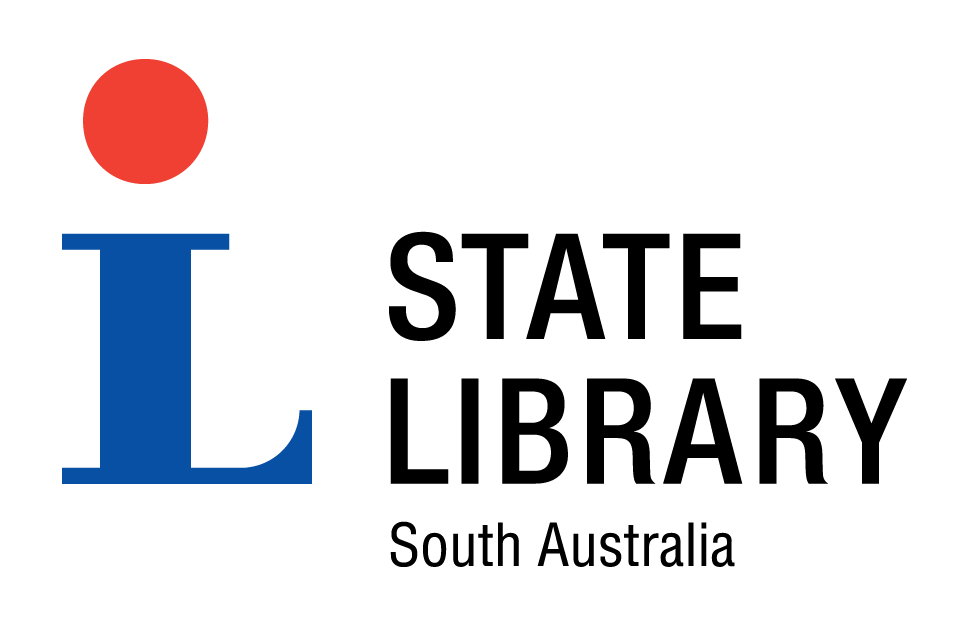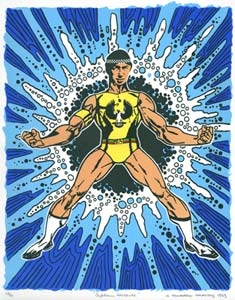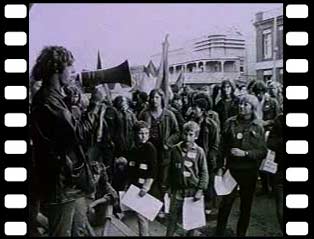
The 1970s
In 1970 South Australia was emerging from two decades that had changed the face of Australia and much of the world. The post war era had seen increasing numbers of women in the workforce, unprecedented migration from southern Europe, and the development of education and expectations. The Beatles, the Kennedys, Martin Luther King, the space race, Vietnam, and flower power were all external influences for change that were beamed into Australian homes courtesy of the new media, television.
Raised in this climate, the first baby boomer babies were turning 21, being called-up for National Service, becoming financially independent and wanting to participate in the wealth of new ideas and opportunities.
For South Australians an early manifestation of these new expectations was the recognition in 1969 by the Liberal Country League (LCL) government of Steele Hall that the gerrymander which had kept Sir Thomas Playford's LCL government in power from 1938 to 1965 could not be maintained.
"Electoral reform was Hall's great contribution to South Australian political history. Without his 1969 reform bill, the future course of events in the state would certainly have been quite different …. As a piece of legislative statesmanship it earned the Premier deserved credit." [Parkin, Andrew, Embracing the Dunstan decade, pp. 476-477, Flinders history of South Australia, 1986.]
The election of the Australian Labor Party (ALP) led by Don Dunstan on 30 May 1970 began almost nine years of social reform unprecedented in South Australia's history. Major issues at the time appeared to be based on infrastructure rather than social reform. The Chowilla vs Dartmouth Dam debate had brought on the election when the Speaker, independent Tom Stott, voted against the government. Also the Metropolitan Adelaide Transportation Study (MATS) that proposed a network of motorways in the mid 1960s, cut a swathe of uncertainty for land prices through metropolitan Adelaide. But Dunstan's policy speech for the 1970 election identified his vision as having a different emphasis. "South Australia will become the technological, the design, the social reform, and the artistic centre of Australia. ... We'll set a standard of social advancement that the whole of Australia will envy." [ALP Policy speech, Don Dunstan, 1970]
The first term of the ALP government led by Dunstan lasted from 1970 to 1973. Examples of social reform legislation passed during this period included the Age of Majority (Reduction) Act, 1971, that reduced the age of majority from 21 to 18, the Corporal Punishment Abolition Act, 1971, the Daylight Saving Act, 1971, the Ombudsman Act, 1972, the Listening Devices Act, 1972, an Act to establish the South Australian Theatre Company, 1972, the Community Welfare Act, 1972, an Act to constitute an Environment Protection Council, 1972, the Coast Protection Act, 1972, an Act to establish the South Australian Film Corporation, 1972, an Act to provide for the safety, health and welfare of persons engaged in industry, 1972, and an Act to provide protection for consumers, 1972.
As 1972 and the Parliamentary session came to a close The Advertiser reported the volume of government business, 'The State Parliament is expected to finish next week after dealing with more than 100 Bills. Late sittings will be necessary to complete the work still before Parliament.' But the failure of the Government's Constitution Act Amendment Bill (Council) to pass in the Legislative Council in November 1972 is one example of the difficulties encountered by the Labor government attempting to get reform legislation through a Legislative Council dominated by the Liberal Country League (LCL).
Dunstan had brought a new youthful image to state politics, in November 1972 he was photographed dancing on stage in the finale of the rock musical Hair, and the pink shorts he wore to Parliament in the same month became part of Parliamentary history. But events at the end of the parliamentary session were largely overshadowed by the Federal election campaign and the election of the Whitlam Labor government.
The state election held on 10 March 1973 produced a further shift away from conservative politics in South Australia. The LCL had suffered from a split with key members, Steele Hall and Robin Millhouse, forming the Liberal Movement within the LCL.
Items 1 - 12 of 31















